-
 bitcoin
bitcoin $87959.907984 USD
1.34% -
 ethereum
ethereum $2920.497338 USD
3.04% -
 tether
tether $0.999775 USD
0.00% -
 xrp
xrp $2.237324 USD
8.12% -
 bnb
bnb $860.243768 USD
0.90% -
 solana
solana $138.089498 USD
5.43% -
 usd-coin
usd-coin $0.999807 USD
0.01% -
 tron
tron $0.272801 USD
-1.53% -
 dogecoin
dogecoin $0.150904 USD
2.96% -
 cardano
cardano $0.421635 USD
1.97% -
 hyperliquid
hyperliquid $32.152445 USD
2.23% -
 bitcoin-cash
bitcoin-cash $533.301069 USD
-1.94% -
 chainlink
chainlink $12.953417 USD
2.68% -
 unus-sed-leo
unus-sed-leo $9.535951 USD
0.73% -
 zcash
zcash $521.483386 USD
-2.87%
What is the community and user support of USDT?
USDT's user support is decentralized, relying heavily on third-party exchanges and community forums, while Tether itself offers limited direct assistance, focusing instead on legal and regulatory matters.
Feb 28, 2025 at 08:30 am
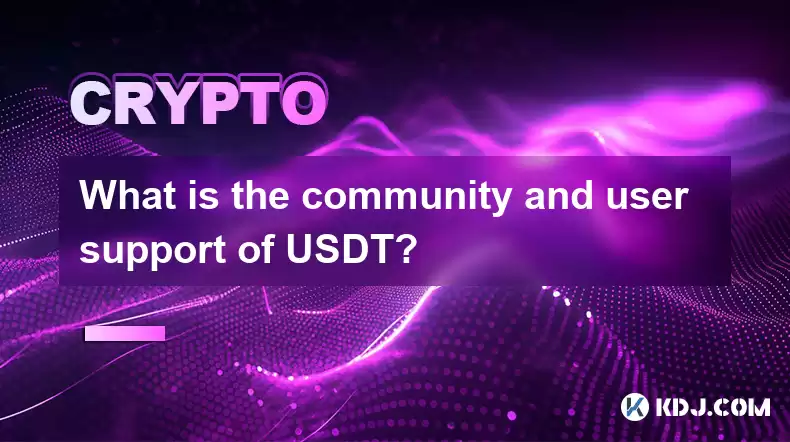
What is the Community and User Support of USDT?
Key Points:- USDT's community support is decentralized and largely driven by online forums, social media groups, and independent developers. There's no single, official, centralized community hub managed by Tether. This decentralized nature presents both advantages and disadvantages.
- User support for USDT is primarily provided through third-party exchanges and platforms where USDT is traded. Tether itself offers limited direct user support, focusing mainly on legal and regulatory communications. This means user assistance is highly dependent on the chosen trading platform.
- The lack of a centralized, official support system for USDT creates challenges in addressing user issues promptly and consistently. This can lead to inconsistencies in the quality of support received, depending on the platform used.
- The large user base of USDT necessitates robust community-driven support mechanisms, though the effectiveness of these mechanisms is debatable and often depends on the specific issue encountered.
- The Decentralized Nature: Unlike some cryptocurrencies with strong, centralized community structures, USDT's community support is fundamentally decentralized. This stems from Tether's business model, which focuses primarily on providing a stablecoin rather than fostering a robust community engagement strategy. While Tether does have a website and official social media presence, these are primarily used for announcements and official communications rather than fostering direct user interaction and problem-solving. Instead, community support largely emerges organically through various online channels. Users often rely on forums like Reddit, BitcoinTalk, and Discord servers dedicated to Tether or general cryptocurrency discussions to seek help and share information. Independent developers also contribute to the ecosystem by creating tools and resources to aid users. This decentralized nature offers certain advantages, such as increased resilience to censorship and a broader range of perspectives. However, it also presents challenges, as information can be fragmented, unreliable, and potentially misleading. The lack of a single, verified source of truth can make it difficult for users to find accurate and timely assistance.
- The Role of Third-Party Exchanges: Most users interact with USDT through cryptocurrency exchanges. These exchanges provide the primary channel for user support related to USDT transactions, deposits, withdrawals, and any issues arising from using the stablecoin on their platform. The quality of support offered varies significantly across different exchanges. Some exchanges offer comprehensive customer service channels, including email, live chat, and phone support, while others might rely primarily on email or a ticketing system, with potentially longer response times. The support received is therefore contingent upon the policies and capabilities of the individual exchange, not directly from Tether itself. This means a user's experience can differ drastically depending on which platform they utilize to transact with USDT. For example, a user facing a withdrawal delay might receive prompt assistance from one exchange, but face significant delays or a lack of response from another.
- Independent Developers and Community Resources: The USDT ecosystem benefits from contributions from independent developers who create tools and resources to assist users. These tools might include wallets, block explorers, and analytical platforms that provide information about USDT transactions and holdings. These developers often participate in online forums and communities, offering technical support and answering user questions. However, it's crucial to note that these individuals are not officially affiliated with Tether and their support should be approached with a degree of caution. While their contributions are valuable, the lack of official verification increases the risk of encountering inaccurate or misleading information. The reliability and quality of this support heavily depend on the individual developer's expertise and commitment.
- Challenges of Decentralized Support: The decentralized nature of USDT's community support presents significant challenges. The lack of a centralized support structure can lead to inconsistencies in the quality and timeliness of assistance received by users. Finding accurate and reliable information can be time-consuming and difficult, especially for users unfamiliar with cryptocurrency or the specific nuances of USDT. Furthermore, the absence of a single point of contact for resolving disputes or addressing critical issues can leave users feeling vulnerable and unsupported, particularly in situations involving significant financial losses or technical malfunctions. The responsibility for providing adequate support is diffused across various entities, leading to potential gaps and inefficiencies in the support process.
- Limited Direct User Support: Tether itself provides very limited direct user support. Their website primarily focuses on providing information about the company, its operations, and legal and regulatory updates. While they might have contact information available, it is typically geared towards addressing legal and business inquiries rather than individual user technical problems or transaction issues. This approach is understandable, given the scale of USDT's usage and the potential for an overwhelming influx of support requests. However, it leaves a significant gap in direct user support. Most user problems are handled indirectly through third-party exchanges or within the decentralized community forums.
- Focus on Regulatory Compliance: Tether's public communications and official statements primarily focus on addressing regulatory concerns and maintaining transparency regarding its reserves. This reflects the company's priority of adhering to legal and regulatory frameworks, which are crucial for the stability and credibility of a stablecoin. While this focus is important for the long-term health of the USDT ecosystem, it does not directly address the day-to-day support needs of individual users. This leaves users largely reliant on external sources for assistance with technical problems or transaction-related issues.
- The Role of Legal Channels: If a user encounters a significant issue involving potential legal implications, such as a fraudulent transaction or a dispute with an exchange regarding USDT, they might need to seek legal counsel. Tether's legal team would likely be involved in such cases, but this is typically a formal process rather than a direct user support channel for resolving routine technical problems or minor transaction issues.
A: Help for USDT-related issues is primarily found through the cryptocurrency exchange where you are using USDT. You should also explore community forums like Reddit and BitcoinTalk, although information found there should be treated with caution and verified independently. Tether itself offers limited direct user support, primarily focusing on legal and regulatory matters.
Q: Does Tether offer phone support?A: Tether does not publicly advertise direct phone support for individual user issues. Support is largely indirect through exchanges or the decentralized community.
Q: What if I experience a problem with a USDT transaction?A: If you experience a problem with a USDT transaction, your first point of contact should be the cryptocurrency exchange you used to perform the transaction. They are typically responsible for resolving issues related to deposits, withdrawals, and other transaction-related problems on their platform.
Q: How can I verify the information I find about USDT online?A: Be critical of information found online. Cross-reference information from multiple sources, and prioritize information from reputable exchanges and well-established cryptocurrency news outlets. Avoid relying solely on information from unverified sources or individuals.
Q: What is Tether's official stance on community support?A: Tether's official stance on community support is not explicitly defined in a centralized way. Their focus is primarily on maintaining the stability of USDT and complying with regulations. They rely on third-party exchanges and the organically formed community for much of the user support function.
Disclaimer:info@kdj.com
The information provided is not trading advice. kdj.com does not assume any responsibility for any investments made based on the information provided in this article. Cryptocurrencies are highly volatile and it is highly recommended that you invest with caution after thorough research!
If you believe that the content used on this website infringes your copyright, please contact us immediately (info@kdj.com) and we will delete it promptly.
- Blockchains, Crypto Tokens, Launching: Enterprise Solutions & Real Utility Steal the Spotlight
- 2026-01-31 12:30:02
- Crypto Market Rollercoaster: Bitcoin Crash Recovers Slightly Amidst Altcoin Slump and Lingering Fear
- 2026-01-31 13:10:01
- Solana's Stumble and APEMARS' Rise: Crypto Investors Navigate Volatile Markets
- 2026-01-31 13:05:01
- Bitcoin Options Delta Skew Skyrockets, Signaling Intense Market Fear Amidst Volatility
- 2026-01-31 13:00:02
- Cardano Secures Tier-One Stablecoin: USDCX Arrives Amidst Global Regulatory Push
- 2026-01-31 13:00:02
- A Shining Tribute: Oneida Woman, Washington's Army, and the New $1 Coin
- 2026-01-31 12:55:01
Related knowledge
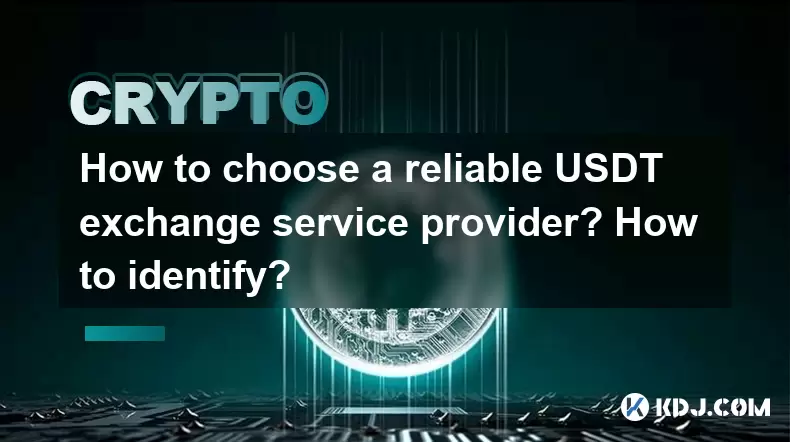
How to choose a reliable USDT exchange service provider? How to identify?
Jun 12,2025 at 03:15pm
Understanding the Role of USDT in Cryptocurrency TradingUSDT (Tether) is one of the most widely used stablecoins in the cryptocurrency market. It is d...
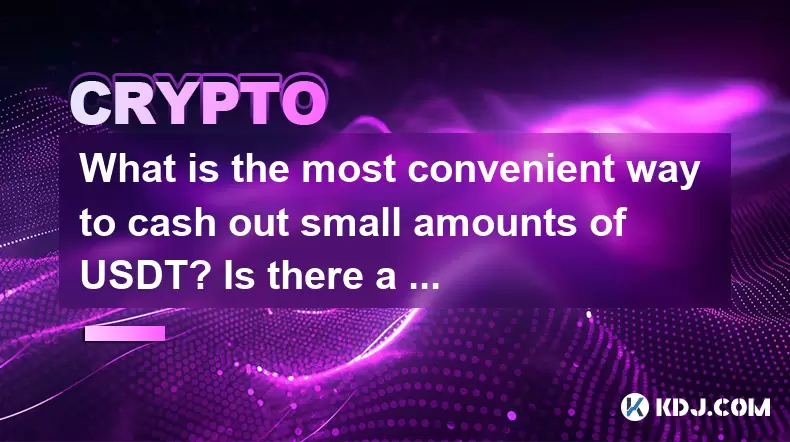
What is the most convenient way to cash out small amounts of USDT? Is there a shortcut?
Jun 11,2025 at 11:00pm
Understanding the Need to Cash Out Small USDT AmountsCashing out small amounts of USDT can be a challenge for many crypto users. Traditional methods o...
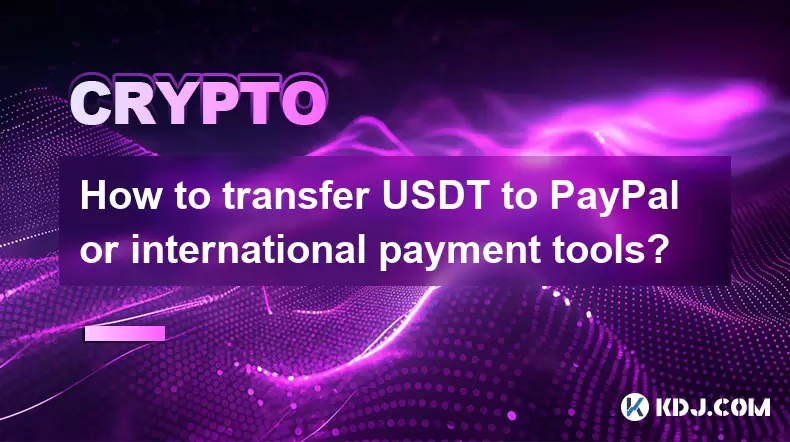
How to transfer USDT to PayPal or international payment tools?
Jun 15,2025 at 05:28am
Understanding the Basics of USDT and PayPal IntegrationUSDT (Tether) is a stablecoin pegged to the US dollar, offering blockchain-based value transfer...
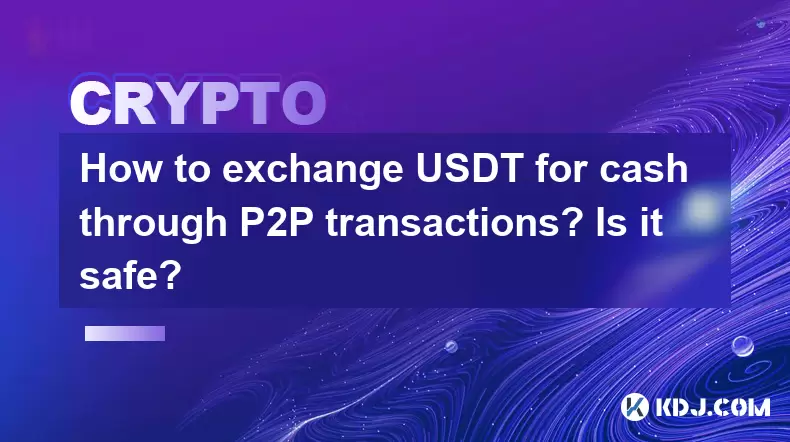
How to exchange USDT for cash through P2P transactions? Is it safe?
Jun 18,2025 at 07:56am
Understanding USDT and P2P TransactionsTether (USDT) is a stablecoin pegged to the value of the US dollar, making it a popular choice for users who wa...
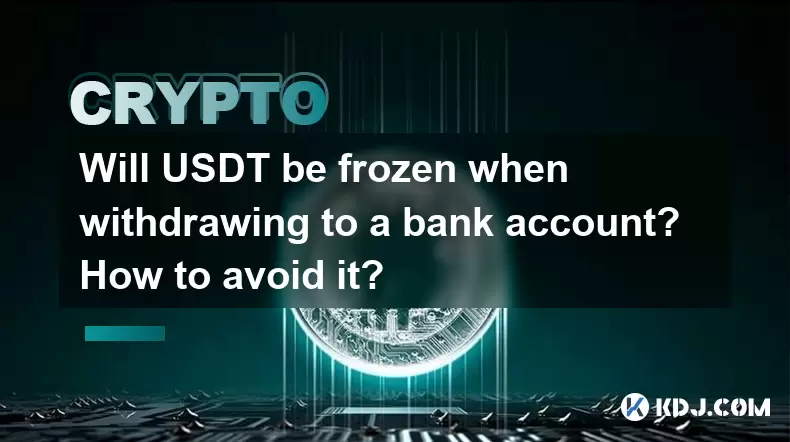
Will USDT be frozen when withdrawing to a bank account? How to avoid it?
Jun 15,2025 at 10:03am
Understanding USDT Withdrawals and Bank Account Freezing RisksWhen users decide to withdraw USDT (Tether) to a bank account, one of the most common co...
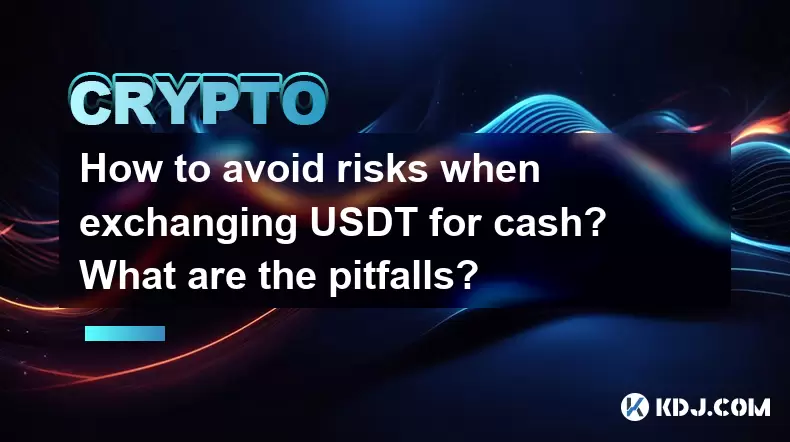
How to avoid risks when exchanging USDT for cash? What are the pitfalls?
Jun 11,2025 at 08:14pm
Understanding the Risks of Exchanging USDT for CashWhen exchanging USDT (Tether) for cash, users must be aware of the potential risks involved. As a s...

How to choose a reliable USDT exchange service provider? How to identify?
Jun 12,2025 at 03:15pm
Understanding the Role of USDT in Cryptocurrency TradingUSDT (Tether) is one of the most widely used stablecoins in the cryptocurrency market. It is d...

What is the most convenient way to cash out small amounts of USDT? Is there a shortcut?
Jun 11,2025 at 11:00pm
Understanding the Need to Cash Out Small USDT AmountsCashing out small amounts of USDT can be a challenge for many crypto users. Traditional methods o...

How to transfer USDT to PayPal or international payment tools?
Jun 15,2025 at 05:28am
Understanding the Basics of USDT and PayPal IntegrationUSDT (Tether) is a stablecoin pegged to the US dollar, offering blockchain-based value transfer...

How to exchange USDT for cash through P2P transactions? Is it safe?
Jun 18,2025 at 07:56am
Understanding USDT and P2P TransactionsTether (USDT) is a stablecoin pegged to the value of the US dollar, making it a popular choice for users who wa...

Will USDT be frozen when withdrawing to a bank account? How to avoid it?
Jun 15,2025 at 10:03am
Understanding USDT Withdrawals and Bank Account Freezing RisksWhen users decide to withdraw USDT (Tether) to a bank account, one of the most common co...

How to avoid risks when exchanging USDT for cash? What are the pitfalls?
Jun 11,2025 at 08:14pm
Understanding the Risks of Exchanging USDT for CashWhen exchanging USDT (Tether) for cash, users must be aware of the potential risks involved. As a s...
See all articles





















![Ultra Paracosm by IlIRuLaSIlI [3 coin] | Easy demon | Geometry dash Ultra Paracosm by IlIRuLaSIlI [3 coin] | Easy demon | Geometry dash](/uploads/2026/01/31/cryptocurrencies-news/videos/origin_697d592372464_image_500_375.webp)




















































